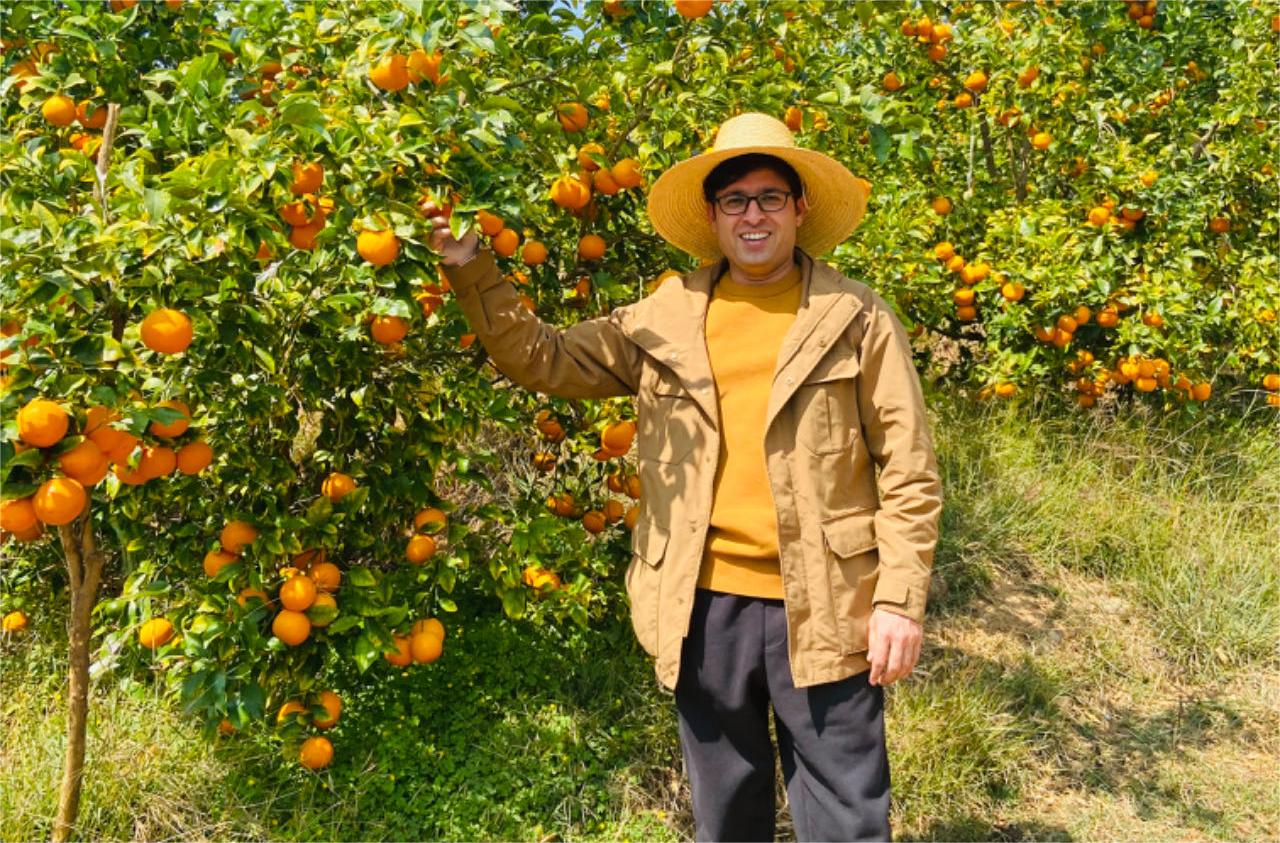A Pakistani 'Citrus Doctor' in Yunnan
By LONG Yun & BI Weizi

Dr. Shahzad Munir. (COURTESY PHOTO)
Citrus fruits are undeniably enjoyed worldwide for their refreshing flavors and are an excellent source of vitamin C. To ensure sustainable growth of the citrus industry, a group of scientists are doing research on citrus diseases. Dr. Shahzad Munir from Pakistan, also known as the "Citrus Doctor," is one of them.
Munir is an expert who mainly researches on the citrus Huanglongbing (HLB), also known as citrus greening, one of the most serious citrus plant diseases. His study in the field of HLB began in 2015, when he left Pakistan to pursue academic research in southwest China's Yunnan province. He was drawn to China by the reputation of his mentor, Professor He Yueqiu and his team's environmentally friendly research method.
Combating HLB will bring huge ecological and economic benefit to the citrus industry. Munir told Science and Technology Daily that the challenges posed by HLB are similar to the threat from a pandemic. "HLB is a citrus pandemic in the world and it impacts the citrus industry both technologically and commercially," he said.
The widespread presence of the disease across citrus planting regions worldwide has set off alarm bells for the urgent need of effective control strategies.
Munir's research team has been pioneering the use of endophyte-mediated control technology, an innovative and environmentally friendly approach, to combat HLB. "I think this is a very important strategy that can be applicable both in [the] academic community and [from a] practical aspect," he said.
Now, his team has successfully isolated microbial strains in the form of native endophytes that have been successfully tested in 164 acres of citrus fields across China, demonstrating outstanding results in disease prevention and control.
"An outstanding scientist [in my field] should step out of [the] laboratory to assist farmers in preventing and managing plant diseases," said Munir.
Over the past eight years, Munir has actively shared his knowledge on HLB prevention with farmers in Binchuan county in Yunnan, China fostering a positive relationship with the local agricultural community. Farmers appreciate Munir's patient explanations and consider him a welcome foreign expert who genuinely cares about farmers' challenges.
Some local farmers have even dubbed him the "Citrus Prince," and when asked about the tangible benefits of his research to local farmers, Munir highlighted the increased fruit yield resulting from effective HLB control.
However, "Patience is needed in our research," said Munir, emphasizing the long-term nature of their research and the need for sustainable solutions. Still, he remains optimistic about the potential of the endophytic approach as a safe, environmentally friendly, and effective strategy for disease control in the long run.
According to Munir, the broader implications of their work are not limited to China. He hopes to collaborate with international research groups, aiming to extend their expertise to benefit farmers globally and offer solutions to combat HLB and promote the prosperity of the citrus industry.
Speaking about his academic journey in Yunnan, Munir mentioned that his academic achievements in recent years are inseparable from the support of China's talent policies.
"I don't face any difficulties in my work, and everything is very smooth," said Munir. He added that the favorable research environment and excellent laboratory conditions, as well as the friendliness of the people, make his research journey more productive. At the same time, he especially mentioned the abundant opportunities and rewards for young researchers. Munir noted that, "One of the most important help is from local farmers, who generously allow our research activities in their fields."
In addition, China is one of the top citrus-growing countries, with Yunnan province making substantial contributions to the citrus industry. Sharing statistics from 2020, Munir pointed out the vast area of citrus orchards and the impressive annual citrus fruit output all provide a promising stage for him to unleash full research potential.
Looking ahead, Munir stressed the urgency of continuously finding new and innovative approaches to control HLB and therefore ensure the sustainability of citrus production. He highlighted the collaborative efforts needed to encourage more researchers to join the cause and work together to pursue a sustainable agricultural goal in the future.







